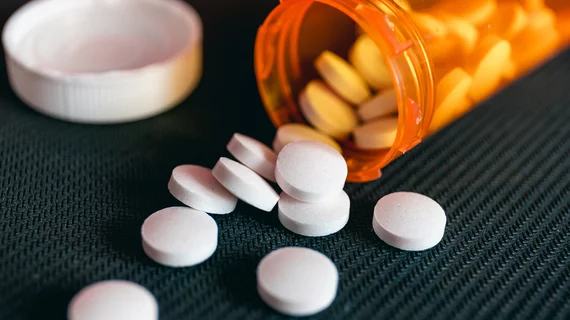Top-selling drugs keep rising in price
Brand-name drugs are likely to keep rising in price, even though the top-selling ones have been available for years and have already seen their costs skyrocket, according to a new study published in JAMA.
Researchers from the Scripps Research Translational Institute in La Jolla, Calif., set out to find the prices of 49 common top-selling, brand-name drugs in the U.S. and their price differences over recent years. They looked at pharmacy data claims from Jan. 1, 2012, through Dec. 31, 2017, using Blue Cross Blue Shield Axis, a database of more than 35 million individuals with private insurance.
Overall, they found that 78% of this subset of drugs have been available since 2012 and have come with a 50% rise in insurer and out-of-pocket costs. Shockingly, 44% of the drug analyzed have more than doubled in price. The median price increase over that timeframe was 76%, researchers found, and 98% of the drug analyzed had annual or biannual price hikes. The median annual cost increase was 9.5%.
The findings come at a time when national health spending continues to rise, driven by higher prescription drug prices. The results also underscore how little market conditions influence overall drug prices.
“Our results suggest the costs for popular brand-name drugs would double every 7 to 8 years,” wrote lead author Nathan E. Wineinger, PhD, of the Translational Institute, and colleagues. “Competition among brand-name competitors appeared to do little to stymie rising costs.”
Instead, prices of competing brands of similar drugs all appeared to rise, and that trend is likely to continue given the current regulatory climate and market tolerance.
Furthermore, the researchers concluded that the current rebate system actually incentivizes high list prices and reliance on rebates, pushing up overall costs. The current rebate system, which allows pharmacy benefit managers to give rebates to pharmacies and insurers to lower the cost to consumers, is described as opaque, as these costs are not typically disclosed and rebates can be kept by PBMs.
In early 2019, HHS proposed eliminating the drug rebate system altogether, to mixed reactions from the pharma industry.
This finding would promote the idea of price transparency, researchers noted.
“Reasonable drug costs for consumers must be balanced with incentives in the pharmaceutical industry to produce innovative drugs that improve and save lives,” they concluded.

